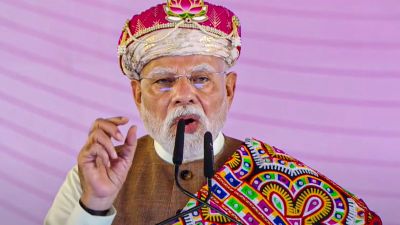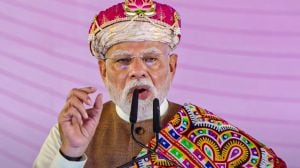Gun trials cancelled,Army set to feel the recoil
India's long-overdue artillery modernisation process has been derailed once again with the cancellation of the trials for the 155 mm towed guns last month....
India’s long-overdue artillery modernisation process has been derailed once again with the cancellation of the trials for the 155 mm towed guns last month. The Defence Ministrys move has not only brought the eight-year search to an end but also thrown up questions on the fairness of the procurement procedure.
Even as the Army is waiting desperately to add new guns to its armoury,that has remained static for the past 26 years,the Ministry cancelled the trials after one of the two vendors was recommended for blacklisting by the CBI.
The agency sought the blacklisting of Singapore Technologies Kinetics (STK) in the Ordnance Factory Board scam,leading to a single vendor situation for the procurement of the 400 guns required. Since the Defence Procurement Procedure (DPP) prohibits such a scenario,the Ministry would have to go in for fresh tenders.
However,several questions have been raised on the selective use of the DPP to scuttle the procurement,in which the only other gun in fray was BAE Systems Bofors a name that still carries a stigma in Indian politics.
While the DPP has been shown as the reason for the cancellation,the Ministry itself violated the procedures several times during the procurement process and gave STK several chances to bring its gun for the trial even after it fell short of requirements. As per the DPP,a vendor that fails to get ready on time for trials can be given a 15-day grace period to get its system in place. Any other exception can only by made with the nod of the Defence Minister.
However,on three occasions after the Request For Proposal (RFP) was issued in 2008,exceptions were made for STK. Trials were first delayed to enable STK to participate after it was named in the ordnance scam in 2009. After taking legal opinion,the trials were ordered once again in February 2010 and both vendors STK and BAE were asked to bring their gun to India. However,STK failed to since the only working model developed a snag after it was damaged during transport. The Ministry then asked STK to get the gun ready in time for trials in June at Pokharan. While the two guns were brought to Pokharan in June,the trials were deferred again after STK asked for more time to calibrate its gun and sort out last-minute issues. The gun was still not ready when the trials were cancelled by the Defence Ministry. While a firm would normally have been disqualified even after a single violation,it took the CBIs recommendation to result in STKs exit from the trial.
Moreover,the government could have carried on with the trials even with only one vendor due to a clause in the DPP. The DPP clearly states that if the staff evaluation (post-trial evaluation) short lists only one equipment,it would not be considered as a single vendor situation as the techno-commercial offers would have been received before trials and the commercial bids were competitive in nature. Bidders had submitted their offers in an open competition and were not aware of any single bidder getting approved after the trials.
The logic of the DPP is that an unfair price should not be quoted by a vendor that knows it is the winner before the trials. In this case,the prices quoted would have been competitive as both expected to go on to the commercial negotiations stage.
Though the Ministry has now issued a new request for information and the procurement process has begun afresh,it will take at least five more years to get new guns for the Army. However,the bigger question to be asked is who will provide the guns. Three firms STK,Denel and Soltam have been recommended for blacklisting by the CBI. The only remaining global player of repute,BAE,has already burnt its fingers three times on the procurement process and would indeed think twice before responding for the fourth round of procurement.
Photos


- 01
- 02
- 03
- 04
- 05





























